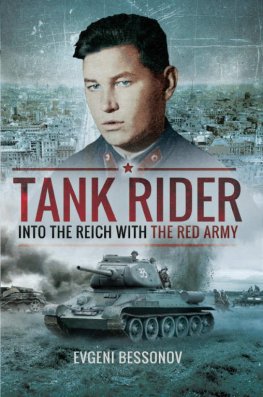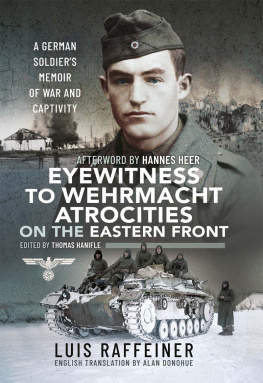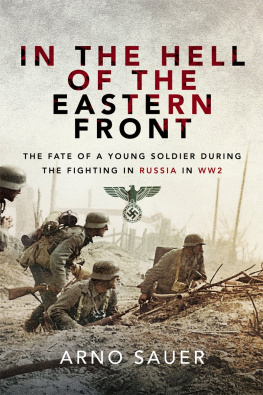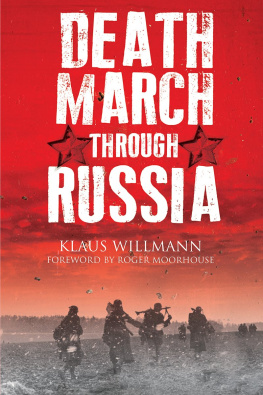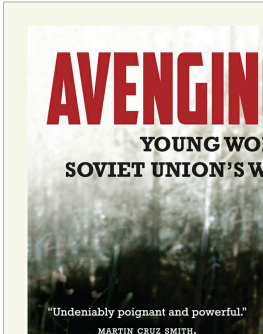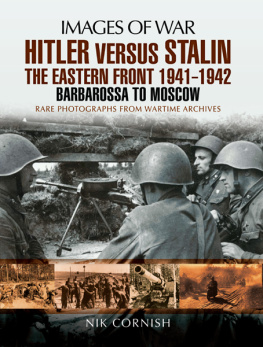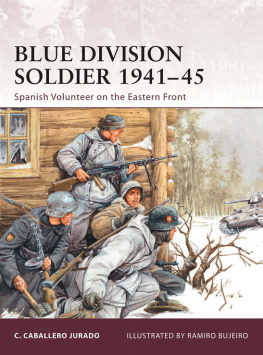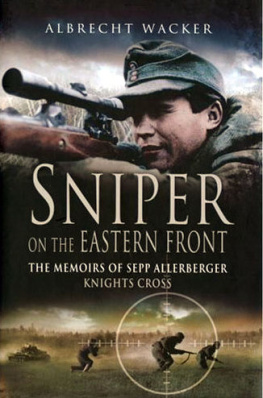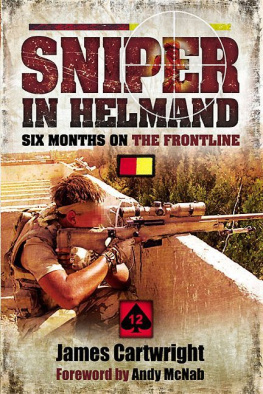Red Army Sniper
Available:
SNIPERS AT WAR
An Equipment and Operations History
John Walter
EASTERN FRONT SNIPER
The Life of Matthus Hetzenauer
Roland Kaltenegger
Forthcoming:
THE SNIPER ENCYCLOPAEDIA
An Illustrated History of World Sniping
John Walter
LADY DEATH
The Memoirs of Stalins Sniper
Lyudmila Pavlichenko
Red Army Sniper
A Memoir of the Eastern Front in World War II
Yevgeni Nikolaev
Foreword by
Albrecht Wacker
Translation by
David Foreman
Greenhill Books
Eastern Front Sniper
This edition published in 2017 by
Greenhill Books,
c/o Pen & Sword Books Ltd,
47 Church Street, Barnsley,
S. Yorkshire, S70 2AS
www.greenhillbooks.com
ISBN: 9781784382360
eISBN: 9781784382384
Mobi ISBN: 9781784382377
All rights reserved.
Translated from Sniper Duels: Stars on my Rifle ,
(Yauza, Moscow, 2009), a revised and expanded edition of
Stars on my Rifle (Leninizdat, Leningrad [St Petersburg], 1985)
Preface and main text Dina Nikolaeva, 2017
Translation by David Foreman Lionel Leventhal Ltd, 2017
Foreword Albrecht Wacker, 2017
CIP data records for this title are available from the British Library
Preface
This book is not the work of a writer. The author was a sniper a role that he came into during the Second World War and never escaped. In the nave heroism of the narrative we encounter the ageing fighter reflecting on his younger self of forty years ago, seeking to unearth the facts of war and the words to capture his experience.
The biography is thus made up of selective memories, an assemblage of experiences moulded over time that insists on the narrative of a victor. It cannot accommodate ambiguities because it is precisely through these proverbial blind spots that the protagonist gains the ability to locate himself and create a fixed identity within the chaos and impossibility of war. Horror, pain, disarray and catastrophe do not figure in this book. Instead, the text is structured by an unbroken line of heroic acts; of unity between mother and son, soldier and fatherland, comrades in arms, commanders and subordinates, but also between the past and the present. These relationships are what give us a deeper insight into the realities of war combined with an impressive collection of photographs, documents, Soviet newspaper clippings and private correspondence.
With this publication in English, a part of our countrys history is unexpectedly crossing borders. Nikolaevs tale gains an entirely new audience and loses the predictability and ordinariness that usually accompany such literature in Russia. It is through this journey of translation that the book gains the status of an original historical document.
The episodes of military action between 1941 and 1945 have been reconstructed by the author significantly later in time for the fortieth anniversary of Victory Day and were composed during times of peace, on the eve of Perestroika and the sunset of the USSR. Carried across decades, the events detailed in this book introduce the 21st-century reader to a colourful representative of the snipers of the Great Soviet Fatherland; Nikolaevs words offer a complete and authentic experience.
Dina Nikolaeva
Granddaughter of
Yevgeni Nikolaev
Foreword
Yevgeni Nikolaev was a member of the Soviet Narodnyi Komissariat Vnutrennikh Del (NKVD the Peoples Commissariat of Internal Affairs), who fought on the Leningrad Front in 1941 and 1942. He appears as number 32 on a Russian list of Second World War snipers with the most kills.
Shortly after the collapse of the Soviet Union, Russian historians engaged in critical debate on the countrys history for the first time. Archives were opened for research and access was granted to foreign historians with the goal of obtaining an objective perspective on the past. However, this new transparency was short-lived. Vladimir Putins rise to power meant the closing of archive doors once again and a return to propaganda to restore the image of Russian glory. Till this day, serious historiography remains uncharted territory.
Nikolaevs autobiography is an interesting example of Soviet propaganda literature and the historical misrepresentation it fashions. The text which was composed around 1980, decades after the events it details, with the help of a journalist must therefore be read critically. For instance, we are told that Finland attacked the Soviet Union when the truth is that the Soviet Union attacked Poland and Finland to reclaim territory it had held before the First World War.
The NKVD is repeatedly presented as a harmless troop of angelic moral heroes, when in reality, the agency was a Stalinist organisation of ferocious terror directly responsible for the deaths of 3,000,000 Soviet citizens and foreigners. The NKVD was like the German SS: both practised the systematic destruction of anyone deemed an enemy of the state. This includes the Katyn massacre in which the NKVD murdered tens of thousands of Polish soldiers. Moreover, although the secret-service arm of the NKVD, Smersh , was notorious for its brutality, the reader encounters virtually no criticism of its activities. It was where Nikolaev served.
The killing of Nazis is glamorised as a sport for real men. Nazis are portrayed as dumb animals walking in a straight line to the slaughterhouse, unaware of their destiny. Idioms like exterminators of the Nazi scum are used as synonyms for the Russian snipers. These propaganda slogans reveal a biographer whose recollections are in perfect alignment with the Stalinist goal of reducing any opponent to an inhuman object.
Although the German snipers facing the Russians were proverbial aces flown in from Berlin and equipped with superior technology like telephone lines to their foxholes, they are nevertheless presented as inferior to the Soviets. Conversely, the Russian NKVD sniper brings down the enemy aircraft by a single shot from his Mosin-Nagant rifle.
This exaggerated patriotism is no less strong when it concerns the authors own actions. In a single ambush, he recollects killing eleven Nazis one after the other, including two colonels and a general who had just arrived from Berlin to inspect the front line. The pathos continues to build as his first action after this event is to inform his beloved mother of how he is fulfilling his duty to his country and family as an obedient son.
The management of truth is in direct relation to the autobiographical memories, which cast the Russian soldier as the moral hero. This is a man committed to serving his country whatever the cost to his personal comfort or life. According to Nikolaev, Russian snipers went into action without a supply of food or water comforts which could distract their attention from their targets. Nikolaevs foxhole was his home amid starvation and dehydration until he could present a host of dead Nazis to his esteemed major.
Eventually Nikolaev is wounded. It should come as no surprise that even this traumatic event is displaced by symptoms of patriotism. Consider the description of how his Russian military presentation watch, which he carries in his trouser pocket, is driven into his stomach by shrapnel, although an explosive rifle bullet also hits his left arm. Nikolaev goes on to save a lieutenants life before seeking out the medical unit. The triumphant arc is complete once the reader learns that a masterful surgeon is attending to the injured, and that with the help of a skilled watchmaker, who happens to be present, the two successfully remove all the parts of watch and shrapnel from Nikolaevs guts.


